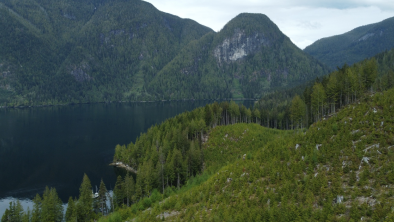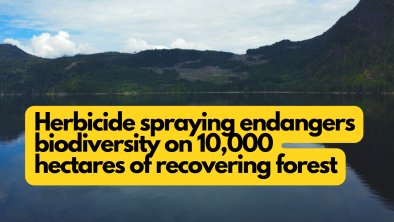Bees rejoice! New policies protecting pollinators have us abuzz with excitement

It’s no news that neonicotinoids are deadly for bees. The science shows the damage neonics cause to pollinator populations all over the world.
For example, beekeepers in Ontario have experienced the damage firsthand. Their honeybee populations have gone down by 30 to 35 per cent every year since 2007. That’s double the usual overwintering loss. 80 per cent of the apiaries visited tested positive for neonics, which are up to 10,000 times more toxic than DDT. So what’s being done to remove these toxic pesticides from use nationwide?
Since our last blog post updating you about the best places to shop for bee-safe plants, not much has changed in the gardening retail world. However, there have been some promising advances in neonic regulation in Canada.
- The province of Ontario is the first jurisdiction in North America to restrict neonics in agricultural systems. Yay, Ontario! The province now disallows blanket use of neonic-treated corn and soybean seeds unless the farmers demonstrate a pest problem. Until now, almost all of the grain crops & about 60 per cent of corn and soybean seeds in Ontario have been treated with neonics. Vendors who sell neonic-treated seeds must now be licensed. This is a step in the right direction to protect bees, birds, aquatic life and humans from the highly toxic neonics that are winding up in streams, soil, and plants across Canada. “Assuming Ontario hits its target of an 80 per cent reduction by 2017, this will be the most important pollinator-protection policy on the continent – and a major contributor to food security,” – Gideon Forman of the Canadian Association of Physicians for the Environment
- Vancouver Parks Board stopped using any plants treated with neonics in fall 2014. This is part of an ongoing Pollinator Policy to use the City’s buying power and extensive green space to use plants that are friendly to honey bees and other beneficial insects.
- In 2015, Montréal effected a total ban on neonicotinoids that applies to parks, urban agriculture and golf courses. Montréal’s strategy is coordinated with Quebec’s overarching provincial strategy.
- Quebec’s Ministry of the Environment is tabling legislation to restrict neonicotinoids and about 50 other toxic pesticides. These regulations build off of Ontario’s, covering all crops and restricting a broader range of active ingredients. Farmers can apply to be exempted from the restrictions if they demonstrate a certain need for chemical pest management.
- The European Union is in the midst of reviewing their current ban on three neonics. The restrictions still apply while EU policymakers do their review. It remains to be seen whether the restrictions will be upheld, expanded or rolled back.
- The French government is going even further than the EU, and has a draft biodiversity protection bill that will completely ban all neonicotinoid use by 2018, if passed. The National Assembly voted to approve this progressive bill this March.
All of these policies are steps in the right direction. Canada needs a nationwide ban on neonicotinoids, because of the connections that bees make between farms, cities and landscapes, and the plants and water that move across these boundaries as well. The decision rests with Health Canada, and its current Minister Jane Philpott whose portfolio includes pesticide use. Please sign the national petition to save our bees by banning neonics today!


